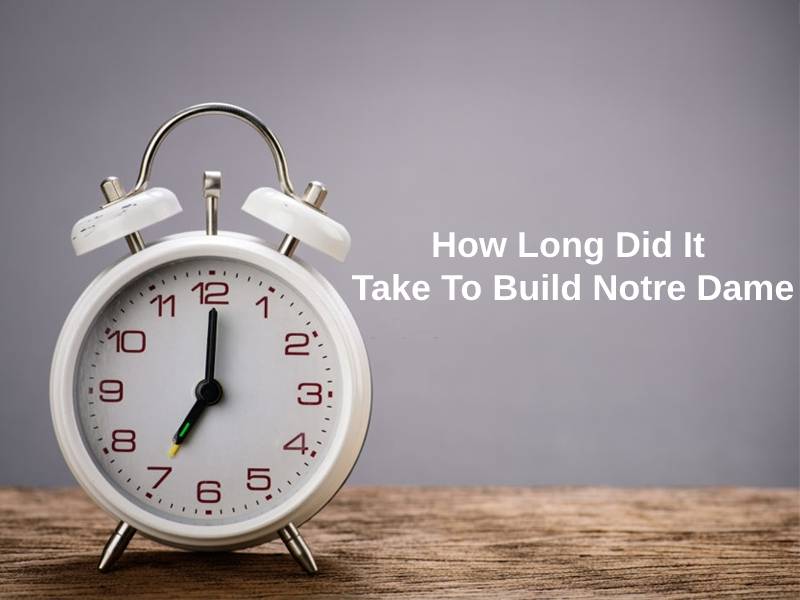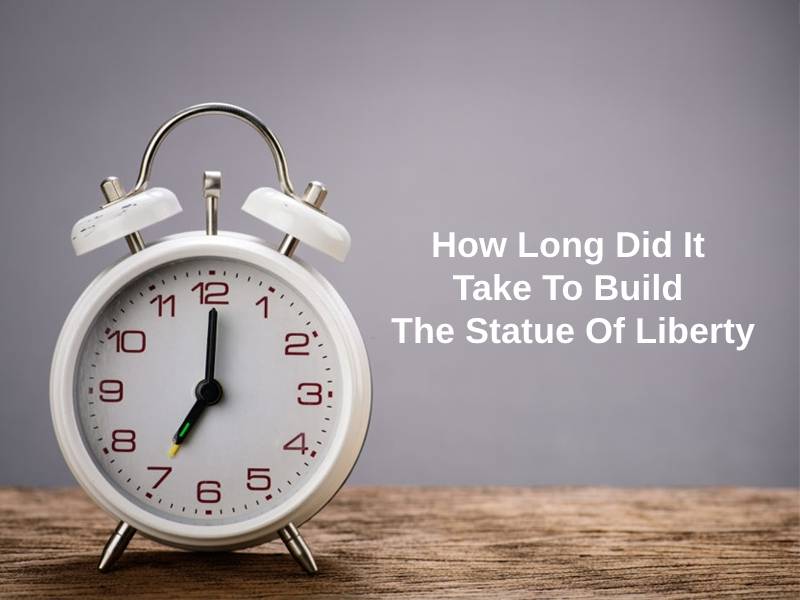Exact Answer: 200 years
Notre-Dame Church is a historic cathedral in Paris, France’s capital. It is one of Paris’ most well-known sights, architectural significance, and the scene of Victor Hugo’s novel “The Hunchback of Notre Dame.”

How Long Did It Take To Build Notre Dame?
| When happened | When it happened |
| The decision to build Notre Dame | 1160 |
| Construction started | 1163 |
The decision to build Notre Dame was taken in 1160, shortly after the Paris cathedral was designated as the principal church for all European rulers. Bishop Maurice de Sully saw the need for a larger, more impressive cathedral, and the previous church on the same site was dismantled.
Construction of Notre Dame began three years later, and even Pope Alexander III was present at the ceremony where the first cornerstone was poured. The cathedral was built for about 200 years, beginning in 1163 under King Louis VII’s reign and ending in 1345, almost as long as the whole Gothic period. It’s on the Ile de la Cite, a little island in the center of the Seine River.
The Cathedral of Notre Dame was one of the earliest structures to incorporate the flying buttress. Buttresses are built along the sides of churches to support the weight of the church’s walls and roof. The buttress is an important aspect of the cathedral’s appearance, as well as a common characteristic of other Gothic cathedrals.
Notre Dame has been subjected to a great deal of vandalism and destruction. Many of the cathedral’s idolatrous windows were demolished by a reforming branch of the church in the 1500s. During the French Revolution in the 1700s, much of the cathedral’s valuables were destroyed. Over the years, excavations have shown that the region under the cathedral has a wealth of history, including hidden halls and cellars, furnaces, and other mysteries.
Why Did It Take That Long To Build Notre Dame?
The fact that Notre Dame took so long to build is due to a lack of funds and planning. Notre Dame’s finished cathedral design differed from what had been envisioned. Rather than being a part of the initial concept, it was a succession of improvements and extensions made over time.
These flying buttresses were installed when stress fractures were identified, and they serve as an example of expert troubleshooting of a specific building issue. The project’s funding came mostly from private sources, primarily from a few key individuals, rather than from the government.
Walking around the Parvis square and the outside of the church is all that is required of a visit to Notre Dame. The symmetrical construction, huge towers, and rising windows, as well as the statues of 28 Kings of Israel in a row across the middle of the building facades and the masonry around the doorways, make the facade one of the most important features of the building.
The beautiful architecture and spire in the back of the cathedral, as well as the impressive gateway on the northern side. There are also small garden areas on the right and behind the cathedral. After viewing the inside of Notre Dame Cathedral, you may go to the towers, which are the most fascinating part of your visit due to the iconic bells and gargoyles, as well as the panoramic views of Paris’ roofs.
Conclusion
Notre-Dame de Paris is one of the world’s oldest and most famous Gothic cathedrals. The views from its towers of Paris are spectacular. The archbishop of Paris is seated at the Notre Dame cathedral, which means Our Lady in French.
While the Eiffel Tower is a famous symbol of Paris, it is not as ancient as Notre Dame. The Eiffel Tower began construction in 1887 and was completed in 1889, two years later. Both monuments are significant in the city’s history, though Notre Dame is by far the oldest in terms of years.
In terms of age, even the iconic Arc de Triomphe in the heart of Place Charles de Gaulle pales in comparison. Construction began in 1806, 643 years after Notre Dame’s original construction.




















